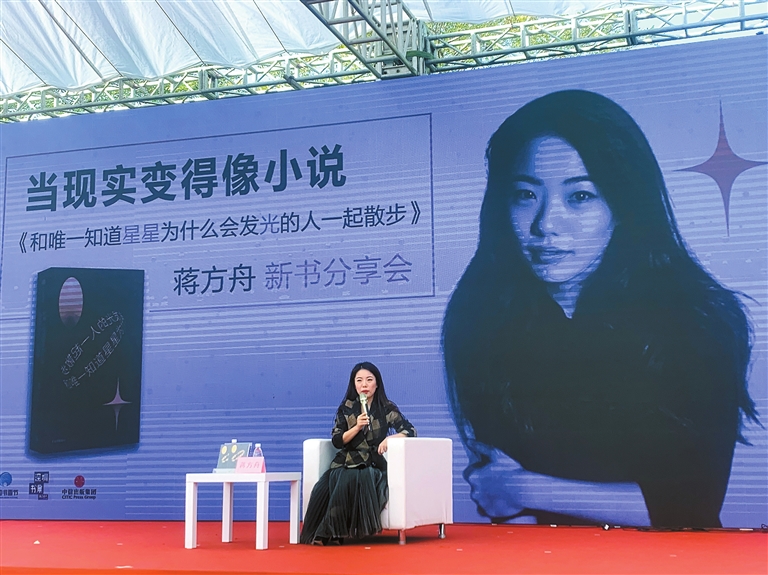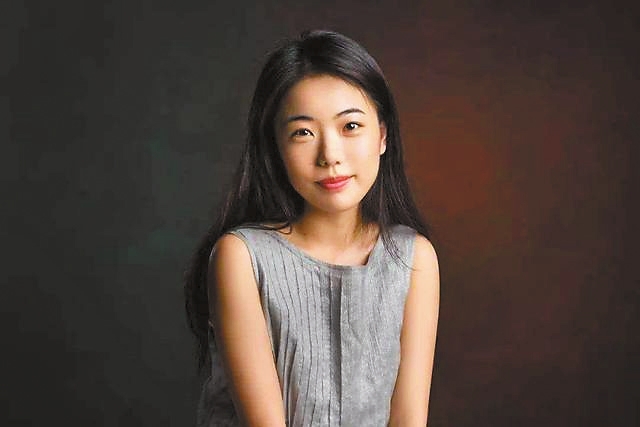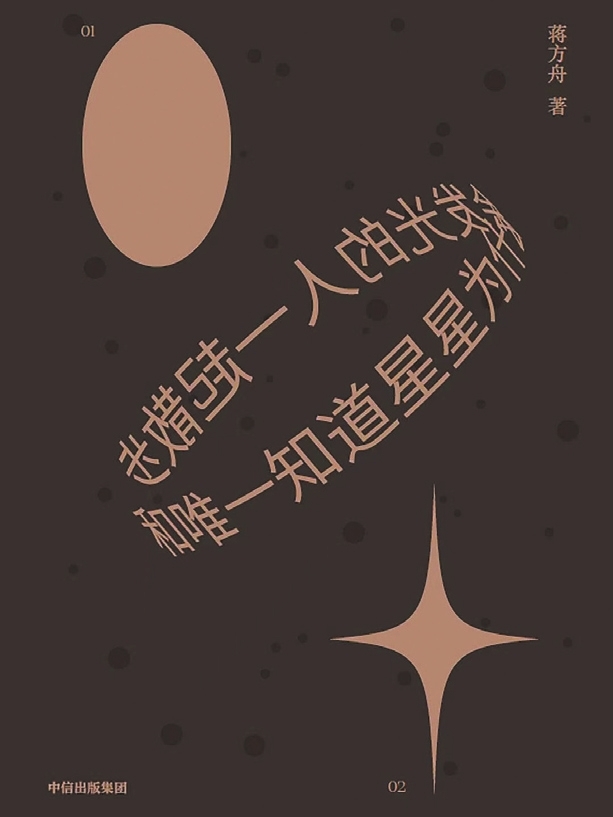


Lin Songtao 254238712@qq.com “THE book’s title has 19 characters, which is the longest I’ve ever seen in a Chinese publication. A reason why I named it this way is I usually meet readers who say ‘I grow up accompanied with your books,’ and I ask them ‘can you recite a title of one of my books,’ but they often get ‘breathless’ and cannot say the names right, and then I’m happy. So, it’s because of my mischief mindset.” Jiang Fangzhou, who became renowned from a young age for literary works and later obtained exceptional admission to Tsinghua University, now an author popular among youths, shared thoughts with readers about her new book “Go for a Stroll With the Only Person Who Knows Why the Stars Shine” at Shenzhen Book City CBD Store in Futian District on Saturday. The sharing meeting is a 21st Shenzhen Reading Month event. The writer said she didn’t know which literary category the new book should belong to, but ultimately described the book as a “speculative fiction” (推想小说), a form of works that often appears in Western literature but much less frequently in Chinese literature. “This is a type of literature that I like. To explain easily, it forms two questions: What if the world changes and what will we be like, and what will happen if it goes on. It shows a world like where we live but strange, not like typical ‘science fiction’ stories.” Jiang gives two examples of books in this category: “The Handmaid’s Tale” and “Fahrenheit 451.” She said, “When you read a piece of ‘speculative fiction,’ you first have to assume a past that didn’t exist, and then to extrapolate from the past to the future, that is, if you want to predict the future, you have to create a ‘present’ first. That’s the great fun of reading it.” Jiang found that unlike social-science-related books, “speculative fiction” can inspire a kind of empathy. “It’s a big difference between them. For example, when I was reading ‘Fahrenheit 451,’ I wondered what I’d do if authors were replaced by robots in the future. We put ourselves in the position of survivors when reading this type of book, and try to figure out how to survive; we see the world through the characters’ eyes. This is the charm of this kind of literature.” The author then mentioned about her newly written book. “There are four novels in this book, two short and two long. The longer pieces were written this year after the pandemic broke out, and they were finished around October. There’s one I finished in 2018, and it was not originally considered to be included in a book. I just wrote it for fun.” “The longest one is named the same as the book title. It envisions a world plague spreading, and ‘World War III’ erupts in a very small but continuous form, and countries are isolated from each other.” Jiang said the inspiration for this story is from a conversation with a Japanese writer during the pandemic, about what if the interaction among countries stagnates. “Will [the conception of] ‘wide world’ ends? So I started to write with this scenario.” She mentioned that the story was also inspired by news of medical supplies interception incidents in Europe. “I felt very surprised because in my mind we live in a highly-developed world, but everyone suddenly goes back to a primitive status. In an extreme situation, we may realize that the borders of our world are shrinking, there’s also a statement in this story: ‘Why do wars exist?’ ‘Because boundaries of the world are smaller.’” “About a year ago, when I was talking to a friend, I said the world is ‘burning,’ but it was still very peaceful and civilized in my young mind, and it will move towards a bright future,” Jiang said. “However, in these years, you suddenly realize that perhaps chaos is the essence of this world.” Jiang summarized that the new work is her interpretation of the world now in a status of turmoil, a world that has gone from order to chaos, and perhaps from chaos back to order again. “I hope very much that the world that the novels show won’t come true, and I hope that people read this book with vigilant sense, and have a think of what should be done if it does come true.” | 
